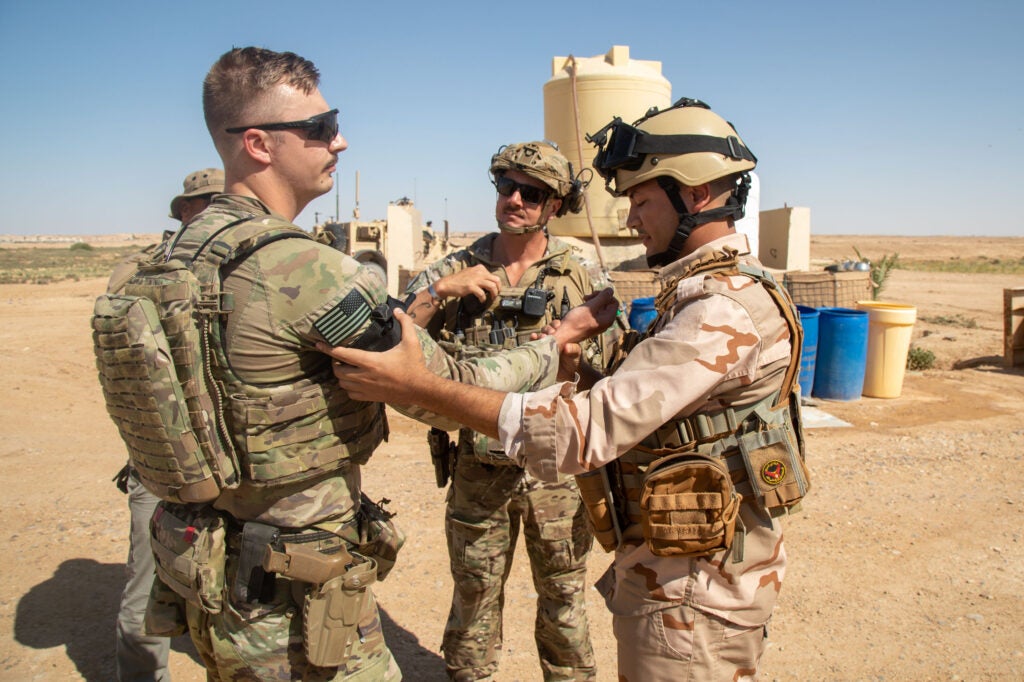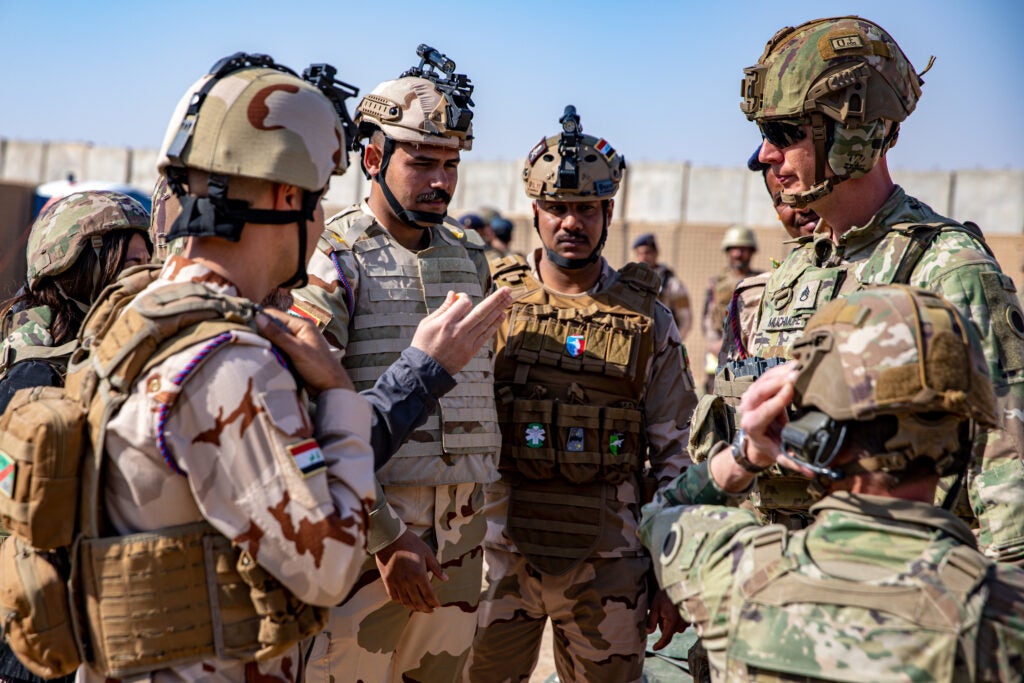US And Iraq To Launch Talks On Future Of Anti-ISIS Coalition
The United States announced Thursday that it will be starting working group meetings of the U.S.-Iraq Higher Military Commission in the coming days, discussing the future of the U.S.-led coalition currently deployed in Iraq to defeat the Islamic State.
In a statement, Secretary of Defense Lloyd Austin said that the meetings will discuss a “transition” of the coalition’s mission to defeat ISIS, with three major factors deciding how the change will unfold: the threat from ISIS, operational and environmental requirements, and the Iraqi security forces’ capability levels.
“Expert working groups of military and defense professionals will examine these three factors and advise the HMC on the most effective evolution of the D-ISIS Coalition mission, ensuring that ISIS can never resurge, in consultation with Coalition partners at all stages of the process,” says Austin.
The United States currently has around 2,500 troops in Iraq as part of Operation Inherent Resolve’s mission to “advise, assist, and enable the Iraqi security forces” in continued anti-Islamic State efforts following their territorial defeat, augmented by detachments from European members of the coalition.

The announcement comes amidst a campaign of attacks by Iranian-backed Iraqi militias on American forces in Iraq and Syria using rockets, suicide drones, and short ranged ballistic missiles since October 7. Militia attacks have continued despite the United States conducting multiple retaliatory attacks on militia facilities used to support the attacks, with the latest taking place on January 23.
As the militias are officially part of the Iraqi security apparatus as the Popular Mobilization Forces, U.S. retaliatory strikes have met with objections from the Iraqi government, who accuse the strikes of violating Iraqi sovereignty.
While Iraqi Prime Minister Mohammed Shia al-Sudani claimed that he would be forming a committee to evaluate methods of ending the coalition presence in Iraq following a January 4 drone strike in Baghdad that killed a senior commander of one of the militias, a State Department cable viewed by Politico quotes senior advisors to al-Sudani as telling American officials that the move was intended to placate domestic audiences, with al-Sudani committed to negotiating for the coalition’s continued presence in Iraq.

